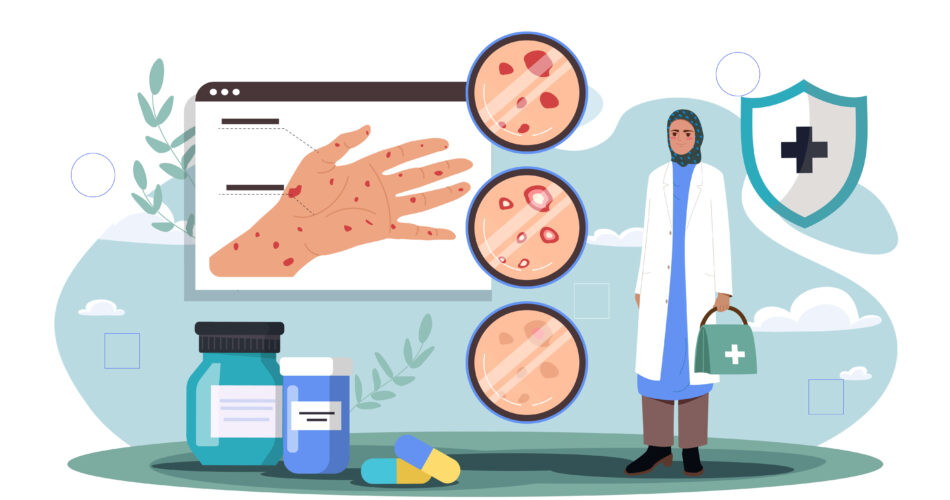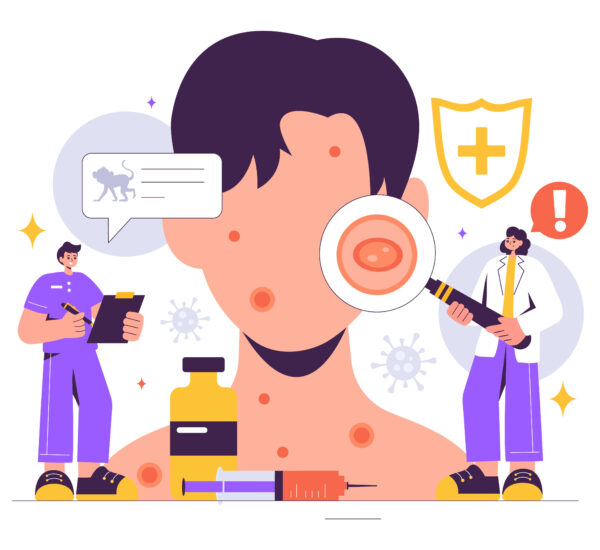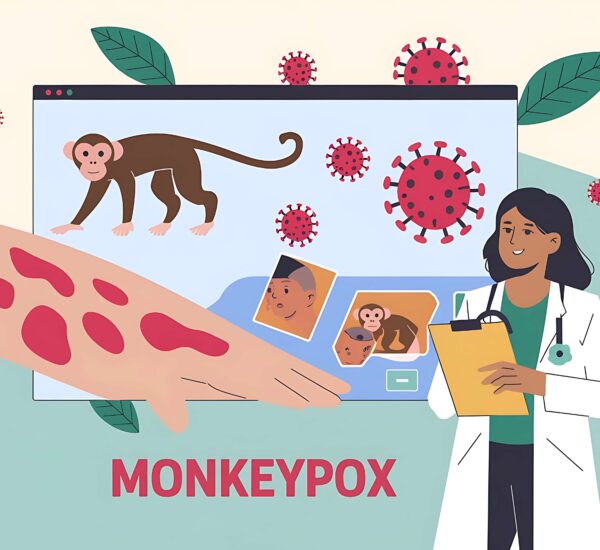Mpox, also known as monkeypox virus, is an infectious disease that has gained global attention due to recent outbreaks. While most cases are mild and can be managed at home, some patients may require hospital care. Understanding the right approach to Mpox treatment is crucial for patient recovery and preventing the spread of the virus.
In this guide, we’ll cover everything from home care strategies for mild Mpox cases to recognizing symptoms that need professional medical attention. You’ll also learn about the role of antiviral medications and the importance of vaccinations in managing Mpox outbreaks.
Let’s begin!
Monkeypox Virus is a Serious Illness
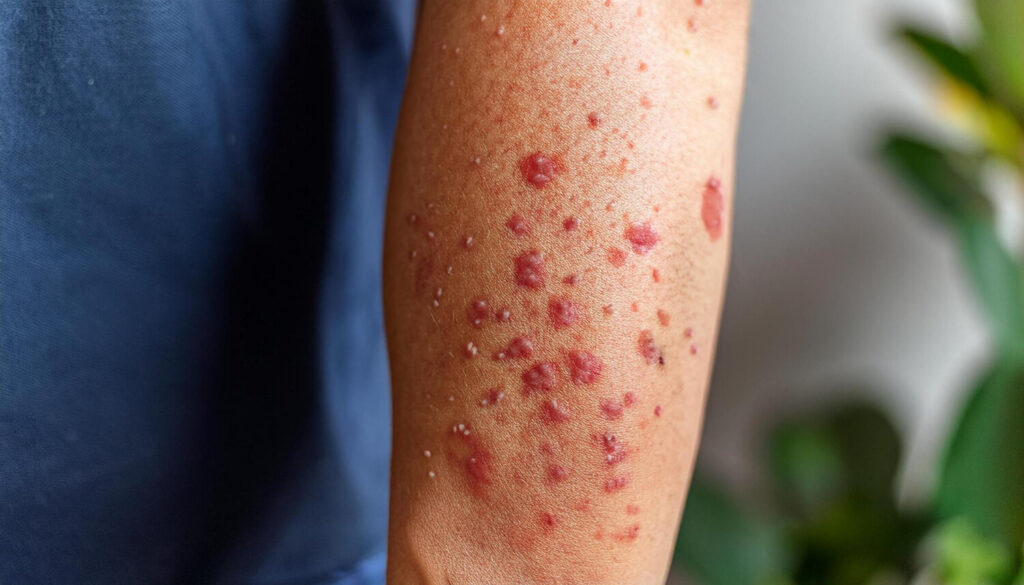
Viral conditions such as Mpox brought fear of viral infection among people in 2022 due to its global outbreak. However, its severity has been well-known since it was first discovered in Central and West Africa. Several cases of Mpox were recorded in the past years, and the spread of Mpox has been most severe in the Democratic Republic of the Congo. Cases involved Mpox infection leading to many patients suffering from severe symptoms like Mpox rash, sore throat, and even death. That’s why with the global outbreak in certain countries, intervention of the World Health Organization is a must.
Despite the health interventions for the previous outbreak of Mpox, another surge began in August this year in the Philippines. Thus, alarming people about how the Mpox spreads in the community, and how to stop them.
What We Know Today
Facing the risk of the Mpox virus today has been one of the priorities of the Department of Health since the outbreak in 2022. Their mechanism of action for promoting Mpox treatment proved to be effective with the lack of severe cases in the country. As of September 16, only 18 Mpox cases were recorded, proving their treatment of Mpox has paved the way towards disease control.
According to DOH, effective guidelines must comprise of the following aspects:
- Prevent transmission by avoiding close physical contact, sexual contact, or skin-to-skin contact.
- Wash hands properly to observe hygiene practices, and prioritize the cleaning of surrounding areas to cleanse reservoirs of the virus.
- Isolate from the public and wear protective wear like face masks and long clothes to avoid contact and spread of Mpox.
- Receive diagnosis of Mpox by undergoing assessment, such as polymerase chain reaction test.
- Begin Mpox treatment, and antiviral medicines to manage symptoms and prevent complications of Mpox.
- Implementation of supportive care focusing on mental stability after recovery from Mpox.
Mpox Treatment: Home Care Vs Health Care
Despite the effective initiatives implemented by DOH in the country against Mpox, proper handling of Mpox is still lacking among the public. Consideration of home management versus healthcare interventions is a factor that needs to be addressed thoroughly for the benefit of public safety. Let’s dwell on that below!
Managing Mild Mpox Cases at Home
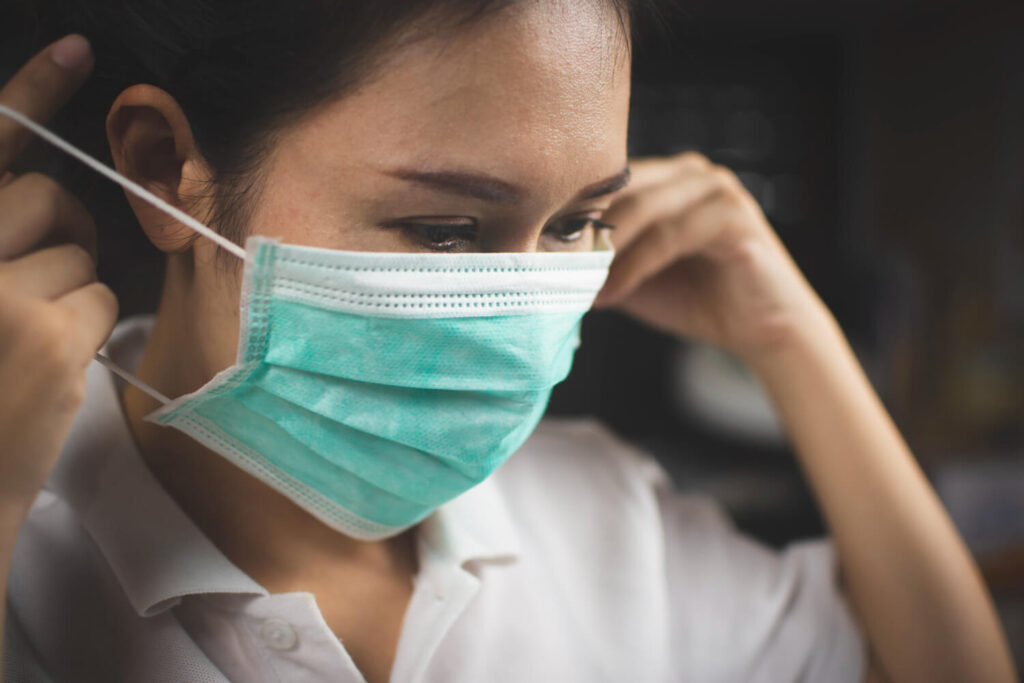
Suffering from Mpox doesn’t automatically lead to death, especially if the Mpox infection you have is the less severe type of viral disease. There are 2 types of Mpox, Clade I, which is the less severe, while Clade II often leads to fatalities. In the case of both Clades, patients contracting the disease may still experience alarming symptoms, but clade I can be managed better than the other.
Fortunately, mild Mpox cases can be effectively managed at home using the right treatment plan.
Symptom Management at Home
Mpox symptoms include fever, headache, muscle aches, and skin rashes or lesions. The rash typically appears a few days after fever and develops into pus-filled blisters. These symptoms are known to last for at least 2- 4 weeks. While these symptoms can be uncomfortable, they can often be managed with over-the-counter treatments:
- Pain relief: Medications like acetaminophen or ibuprofen can help reduce fever and relieve aches.
- Skin care: Keep rashes clean and dry to prevent infections. Sometimes warm baths can help with the skin lesions. Use mild soap and water to gently clean affected areas, and avoid scratching to prevent scarring.
- Hydration: Dehydration can worsen symptoms. Make sure to drink plenty of water and stay hydrated, especially if experiencing a fever.
- Rest: Adequate rest is essential to support the body’s immune response during infection.
Isolation Protocols to Prevent Spread
Aside from personal hygiene and topical medications, it’s also important to practice isolation at home. Mpox is highly contagious, primarily through close contact with bodily fluids, skin lesions, or contaminated materials. To prevent spreading the virus to others, follow these isolation guidelines:
- Quarantine: Stay in a separate room, if possible, and avoid contact with other household members. Use a separate bathroom if available.
- Avoid sharing items: Do not share bedding, towels, or personal items. Wash these items separately in hot water.
- Wear a mask: If interaction with others is necessary, the patient and household members should wear masks to reduce the risk of droplet transmission.
When to Seek Medical Help

Home care for Mpox focuses on symptom relief and preventing the spread of infection to others. However, there are certain symptoms and situations where hospital care may be necessary. Recognizing these signs early can prevent complications and ensure prompt treatment.
Severe Symptoms That Require Hospitalization
If any of the following symptoms occur, seek medical attention immediately:
- Persistent high fever: A fever that doesn’t subside with medication or lasts more than 72 hours could indicate a more severe infection.
- Difficulty breathing: Mpox can cause respiratory issues in some cases, especially if the rash affects mucous membranes or the lungs.
- Severe pain or swelling: Extensive swelling, especially in the lymph nodes, can signify a more serious condition.
- Signs of secondary infection: If skin lesions become red, swollen, or filled with pus, it may indicate a bacterial infection requiring antibiotics.
- Confusion or disorientation: These symptoms could indicate a more severe disease progression or a complication affecting the brain.
Risk Groups for Severe Mpox
Certain individuals are at higher risk of developing severe symptoms or complications from Mpox. These include:
- Immunocompromised individuals: People with weakened immune systems, such as those with HIV or undergoing chemotherapy, are more susceptible to severe Mpox.
- Pregnant women: Mpox may pose a higher risk to pregnant women, potentially affecting the fetus.
- Young children and elderly individuals: Both age groups are more likely to experience complications due to weaker immune responses.
For individuals in these higher-risk categories, consulting a healthcare professional as soon as symptoms appear is advised. Hospital care may be necessary to monitor and manage the illness more closely.
Mpox Treatment Options: From Home Remedies to Hospital Care
While there is no specific Mpox cure, treatment focuses on alleviating symptoms and preventing complications. Understanding the different treatment options, both at home and in hospitals, is crucial for managing the disease effectively.
Antiviral Medications for Mpox
In cases where Mpox leads to severe symptoms, antiviral medications may be prescribed to reduce the severity and duration of the illness. Tecovirimat (TPOXX) is the primary antiviral medication used for Mpox and has shown promise in reducing symptoms and shortening recovery time.
Tecovirimat is typically reserved for individuals with severe symptoms or those at high risk of complications, such as immunocompromised patients. It is available in hospitals and may be prescribed by healthcare providers if deemed necessary.
Symptomatic Treatment in Hospitals
In more severe cases, hospital management of Mpox may involve a combination of treatments aimed at relieving symptoms and preventing complications. Some of the treatments include:
- Intravenous fluids: To prevent dehydration, particularly in cases where patients have difficulty drinking due to throat or mouth lesions.
- Oxygen therapy: For individuals experiencing breathing difficulties due to respiratory complications.
- Pain management: Stronger pain relief medications may be administered in hospitals for patients with extensive skin lesions or severe pain.
Wound Care for Skin Lesions
For patients with extensive skin lesions, wound care is critical to preventing secondary infections. Hospitals may provide:
- Sterile dressings: To cover large or infected lesions and prevent bacterial infections.
- Antibiotics: If a secondary bacterial infection develops, antibiotics may be prescribed to prevent further complications.
Proper wound care can reduce the risk of scarring and other long-term effects of Mpox.
Frequently Asked Questions
What is the first step in home care for Mpox?
The first step in home care is isolating the patient to prevent the spread of the virus to others. Ensure that the patient has their own space, uses separate personal items, and follows good hygiene practices.
How long does recovery from Mpox take?
Recovery from mild Mpox usually takes 2 to 4 weeks. The timeline may be longer for individuals with severe symptoms or underlying health conditions.
When should I seek hospital care for Mpox?
Hospital care is necessary if you experience severe symptoms such as difficulty breathing, persistent high fever, signs of infection, or confusion. Individuals in high-risk groups should seek medical advice early in their illness.
Can I treat Mpox with over-the-counter medication?
Yes, over-the-counter medications like acetaminophen or ibuprofen can be an effective Mpox cure for relieving fever and pain. However, consult a healthcare professional for guidance, especially if symptoms worsen.
Final Takeaway
Managing Mpox effectively requires a combination of home care for mild cases and professional medical management for more severe symptoms. By understanding when to seek hospital care and how to manage symptoms at home, individuals can recover safely while minimizing the risk of spreading the virus.
If you or a loved one is currently experiencing severe symptoms of Mpox, feel free to book an online consultation with an infectious disease doctor!
